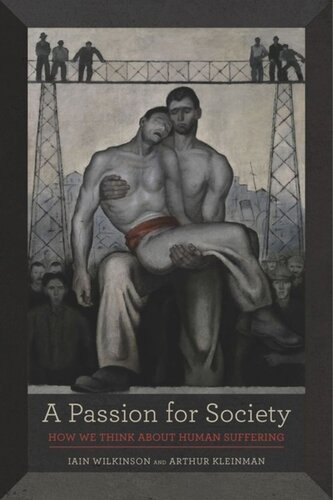

Most ebook files are in PDF format, so you can easily read them using various software such as Foxit Reader or directly on the Google Chrome browser.
Some ebook files are released by publishers in other formats such as .awz, .mobi, .epub, .fb2, etc. You may need to install specific software to read these formats on mobile/PC, such as Calibre.
Please read the tutorial at this link: https://ebookbell.com/faq
We offer FREE conversion to the popular formats you request; however, this may take some time. Therefore, right after payment, please email us, and we will try to provide the service as quickly as possible.
For some exceptional file formats or broken links (if any), please refrain from opening any disputes. Instead, email us first, and we will try to assist within a maximum of 6 hours.
EbookBell Team

4.7
66 reviewsWhat does human suffering mean for society? And how has this meaning changed from the past to the present? In what ways does “the problem of suffering” serve to inspire us to care for others? How does our response to suffering reveal our moral and social conditions? In this trenchant work, Arthur Kleinman—a renowned figure in medical anthropology—and Iain Wilkinson, an award-winning sociologist, team up to offer some answers to these profound questions.
A Passion for Society investigates the historical development and current state of social science with a focus on how this development has been shaped in response to problems of social suffering. Following a line of criticism offered by key social theorists and cultural commentators who themselves were unhappy with the professionalization of social science, Wilkinson and Kleinman provide a critical commentary on how studies of society have moved from an original concern with social suffering and its amelioration to dispassionate inquiries. The authors demonstrate how social action through caring for others is revitalizing and remaking the discipline of social science, and they examine the potential for achieving greater understanding though a moral commitment to the practice of care for others. In this deeply considered work, Wilkinson and Kleinman argue for an engaged social science that connects critical thought with social action, that seeks to learn through caregiving, and that operates with a commitment to establish and sustain humane forms of society.